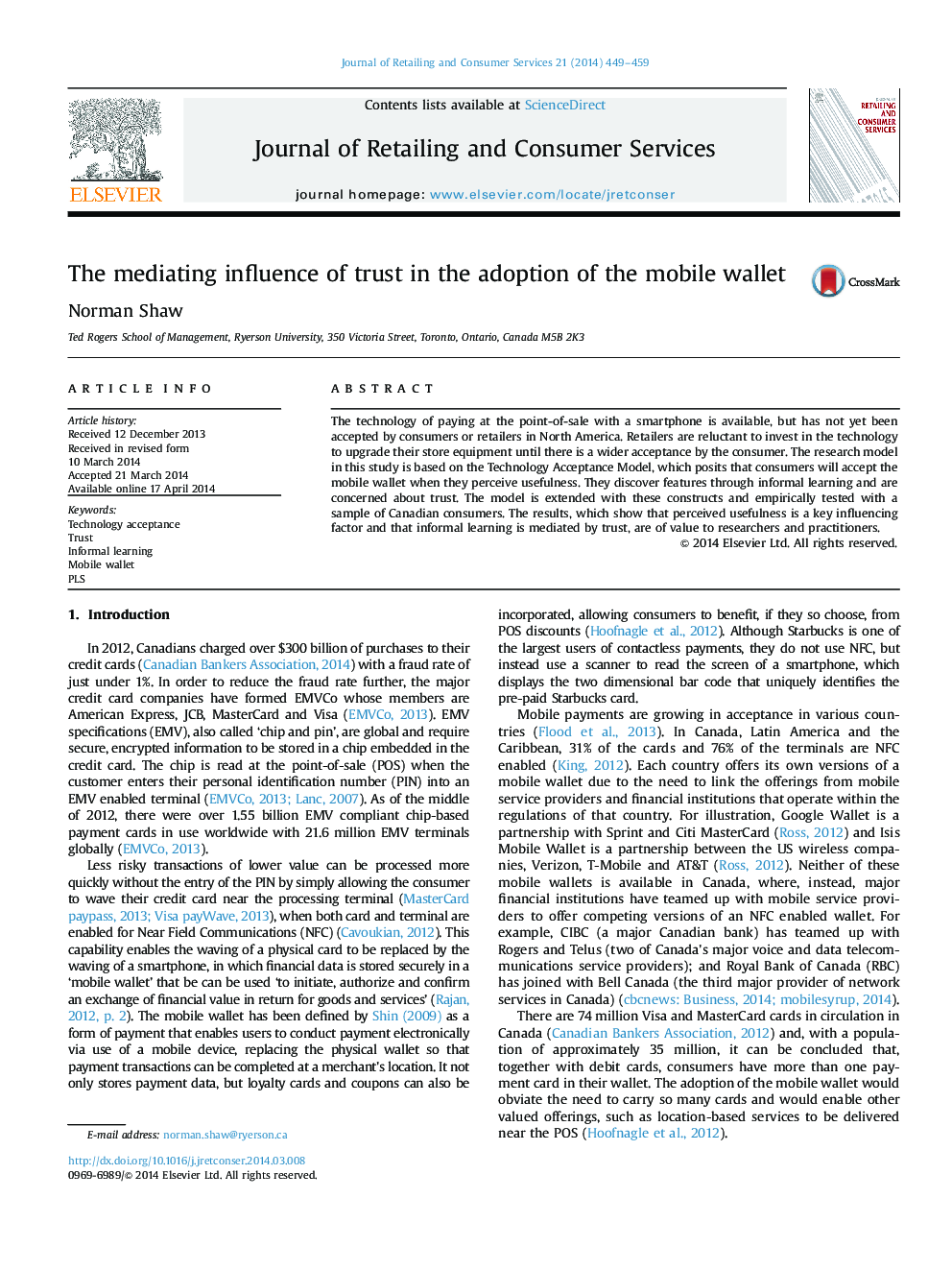| Article ID | Journal | Published Year | Pages | File Type |
|---|---|---|---|---|
| 1029029 | Journal of Retailing and Consumer Services | 2014 | 11 Pages |
•Applications are available that enable smartphones to replace plastic payment cards.•Research model is an extension of Technology Acceptance Model.•Data from a survey of Canadian business students is analyzed with SmartPLS.•Perceived usefulness has the most influence on consumer acceptance.•The influence of informal learning on perceived usefulness is mediated by trust.
The technology of paying at the point-of-sale with a smartphone is available, but has not yet been accepted by consumers or retailers in North America. Retailers are reluctant to invest in the technology to upgrade their store equipment until there is a wider acceptance by the consumer. The research model in this study is based on the Technology Acceptance Model, which posits that consumers will accept the mobile wallet when they perceive usefulness. They discover features through informal learning and are concerned about trust. The model is extended with these constructs and empirically tested with a sample of Canadian consumers. The results, which show that perceived usefulness is a key influencing factor and that informal learning is mediated by trust, are of value to researchers and practitioners.
